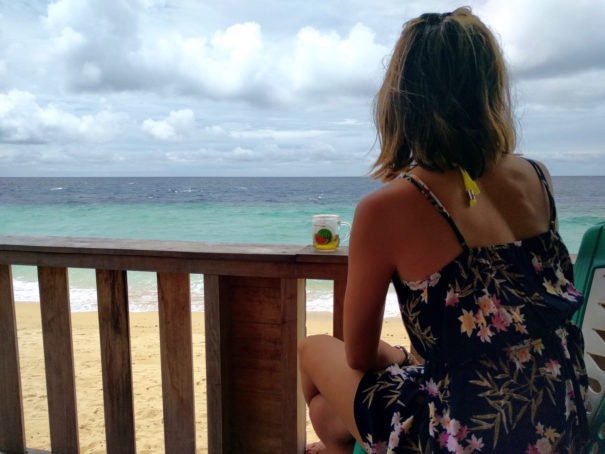
Never Stop Honing Your Skills at Sniffing Out Alcohol in Unexpected Places

Never Stop Honing Your Skills at Sniffing Out Alcohol in Unexpected Places
Beer on Hatta Island
Pulau Hatta—Hatta Island—is a little island that the Dutch once named Rozengain that sits in the Banda Sea.
Brutal wars raged here during the 16th-18th centuries. Part of the larger Maluku archipelago of Indonesia, the Banda Islands—then infamously known as the Spice Islands—are home to one of that era’s most prized and fought-over commodities: nutmeg and mace. The British, the Portuguese, and the Dutch all fought each other for monopoly of the islands, massacring thousands of Bandanese in the process. In those days, just a small amount of nutmeg in Europe could make a man wealthy beyond his imagination.
Now, Rozengain has been renamed Hatta after Indonesia’s first vice-president, who spent time in exile in Banda Neira, the main island of the Bandas. These islands are remote and a pain in the butt to get to—which is precisely why we chose to come here for our honeymoon.
My husband and I are sitting at the verandah of our bungalow at Sarah’s homestay, peeling mace from sun-dried nutmegs. Ominous skies hang low over the raging sea. It doesn’t look good. The rain hasn’t started yet but the sultry air tells us an onslaught is coming. We can smell it.
On the beach, middle-school kids—girls in black and white headscarves and boys in long sleeved, striped yellow jerseys and brown jogging bottoms, amble around.
Instinctively I pull my scarf and throw it around my bare shoulders. Hatta Island, while a little more touristy than before—where 30 or so foreigners fill up the few homestays available—is still a conservative island.
That’s why we were delighted when we found out there was beer. The other long-time residents of Sarah’s homestay had let us in on the secret. Outside the only shop that sells Bintang—the national beer of Indonesia—hangs a sign: “We sell cold drinks.” It’s the shop owner’s clever way to hint to travelers about their alcoholic treasure chest.
The first time we went there, we almost didn’t find it. The little shop was inconspicuous and dingy. The dusty shelves stocked toilet paper, travel-sized Dove and Pantene shampoos, brandless toothpaste, tiny packets of washing detergent, and local chocolate wafer-and-caramel bars called Beng Beng.
When we requested a ‘cold drink’, the lady behind the counter asked, “Big or small?” A Bintang can of 330ml cost 30,000 Rupiah ($2.25) while a 500ml bottle cost 50,000 Rupiah ($3.76). Expensive by Indonesian standards. It was cold too. It was a mystery how these Bintangs could still be cold when electricity only buzzes from 6 p.m. to midnight, powered by generators.
Eventually, we get bored of peeling mace. “Hey, how about some of those cold drinks?” I ask my husband.